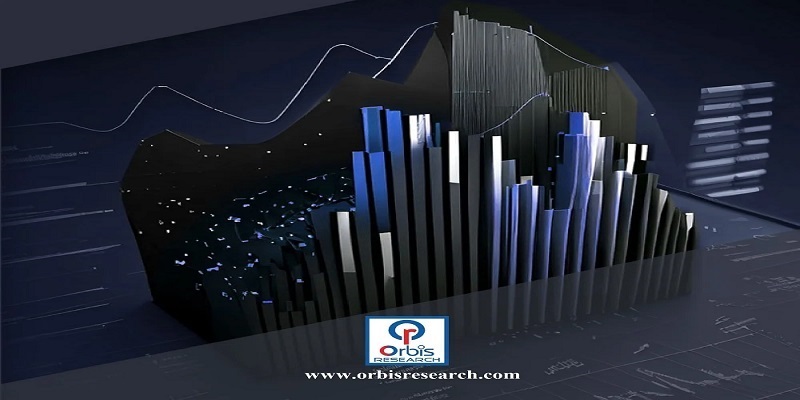
Press Release, Orbis Research Synopsis
The Global Pulmonary Embolism Therapeutics market Report offers a comprehensive examination of the market’s potential for the future as well as the major factors driving its expansion. The purpose of this executive summary is to provide decision-makers with a rapid overview of the report’s findings and the market’s trajectory.
Request a sample report @ https://www.orbisresearch.com/contacts/request-sample/6783269
Among the report’s main conclusions are:
Market Growth: The increasing demand from various industries and technological advances are driving notable growth in the Pulmonary Embolism Therapeutics market.
Competitive Landscape: To keep a competitive edge, major competitors in the market are concentrating on strategic alliances, new product developments, and geographical expansions.
Market Segmentation: The market is split by type, application, end-user, and geography, with extensive information provided for each category.
Technological Patterns: The use of artificial intelligence (AI), machine learning, and cloud-based technologies in Pulmonary Embolism Therapeutics optimization is a significant development.
Regulatory Aspects: The study also identifies and provides recommendations for stakeholders about regulatory aspects that could impact market dynamics.
Analysis of PESTL for the Worldwide “Pulmonary Embolism Therapeutics Industry”
To comprehend the worldwide factors that impact the Pulmonary Embolism Therapeutics market, a PESTL (Political, Economic, Social, Technological, Legal) study is necessary. Stakeholders can use this analysis to evaluate the external environment and potential positive and negative effects on the industry.
1. Political factors: The state of politics and the laws passed by the government have a big impact on the Pulmonary Embolism Therapeutics market. The way that Pulmonary Embolism Therapeutics data is collected, processed, and used is directly impacted by changes in data privacy rules, like as the GDPR in Europe. Investment in technology connected to Pulmonary Embolism Therapeuticss is stimulated by government initiatives that favour innovation and digital transformation, hence propelling market growth. Furthermore, the worldwide supply chain of technology businesses operating in the Pulmonary Embolism Therapeutics market may be impacted by geopolitical tensions or trade restrictions, which could affect their operational costs and efficiency.
Pulmonary Embolism Therapeutics market Segmentation by Type:
Oral
Parenteral Route
Pulmonary Embolism Therapeutics market Segmentation by Application:
Hospital
ASCs
Research Institutes
Direct Purchase the report @ https://www.orbisresearch.com/contact/purchase-single-user/6783269
2. Financial Factors: The expansion of the Pulmonary Embolism Therapeutics market is significantly influenced by the status of the world economy. Businesses are more inclined to invest in cutting-edge technologies, including AI-powered Pulmonary Embolism Therapeutics optimization tools, in areas with strong economic growth. On the other hand, budgetary restrictions brought on by downturns or recessions may result in lower spending on Pulmonary Embolism Therapeutics tools and digital marketing. But as companies increasingly look to digitalization to cut costs, the Pulmonary Embolism Therapeutics market can grow even in recessionary times.
Key Players in the Pulmonary Embolism Therapeutics market:
Insera Therapeutics, Inc
Boehringer Ingelheim International GmbH
Genentech
Bristol-Myers Squibb Co.
F. Hoffmann-La Roche Ltd.
Daiichi Sankyo Co. Ltd.
Johnson and Johnson Services Inc.
Roche
3. Social variables: Shifting consumer habits have a direct effect on the Pulmonary Embolism Therapeutics market. Examples include increased internet usage, online purchasing, and consumption of digital material. The need for Pulmonary Embolism Therapeutics research tools is increasing as more customers utilize digital platforms to make judgments about what to buy. Businesses must optimize their Pulmonary Embolism Therapeuticss to draw in the proper customers. Demographic changes are another aspect of social dynamics. For example, younger people are becoming more tech-savvy, and this increases the demand for individualized information, necessitating the use of more complex Pulmonary Embolism Therapeutics tactics.
Do You Have Any Query Or Specific Requirement? Ask to Our Industry Expert @ https://www.orbisresearch.com/contacts/enquiry-before-buying/6783269
4. Technological Considerations: The main engine of the global Pulmonary Embolism Therapeutics market’s expansion is technological innovation. AI and machine learning have completely changed the way that Pulmonary Embolism Therapeuticss are found and used, making the process quicker and more precise. The advent of cloud computing has also increased the scalability and accessibility of Pulmonary Embolism Therapeutics optimization, giving businesses of all kinds access to cutting-edge resources. In addition, the popularity of voice and visual search is changing the technological landscape, necessitating the development of new technologies and Pulmonary Embolism Therapeutics strategies to stay up to date.
About Us
5. Legal Factors: The Pulmonary Embolism Therapeutics market may be greatly impacted by legal restrictions, especially those about data privacy. More stringent data privacy regulations, like GDPR, would restrict the methods by which companies gather and examine Pulmonary Embolism Therapeutics data, which would impact their capacity to provide tailored content. The use of Pulmonary Embolism Therapeuticss in digital marketing is also influenced by intellectual property rules; in fact, legal conflicts regarding the use of Pulmonary Embolism Therapeuticss in advertising continue to occur in several regions.
Contact Us:
Hector Costello
Senior Manager – Client Engagements
4144N Central Expressway,
Suite 600, Dallas,
Phone: +1 (972)-591-8191,
Email: sales@orbisresearch.com